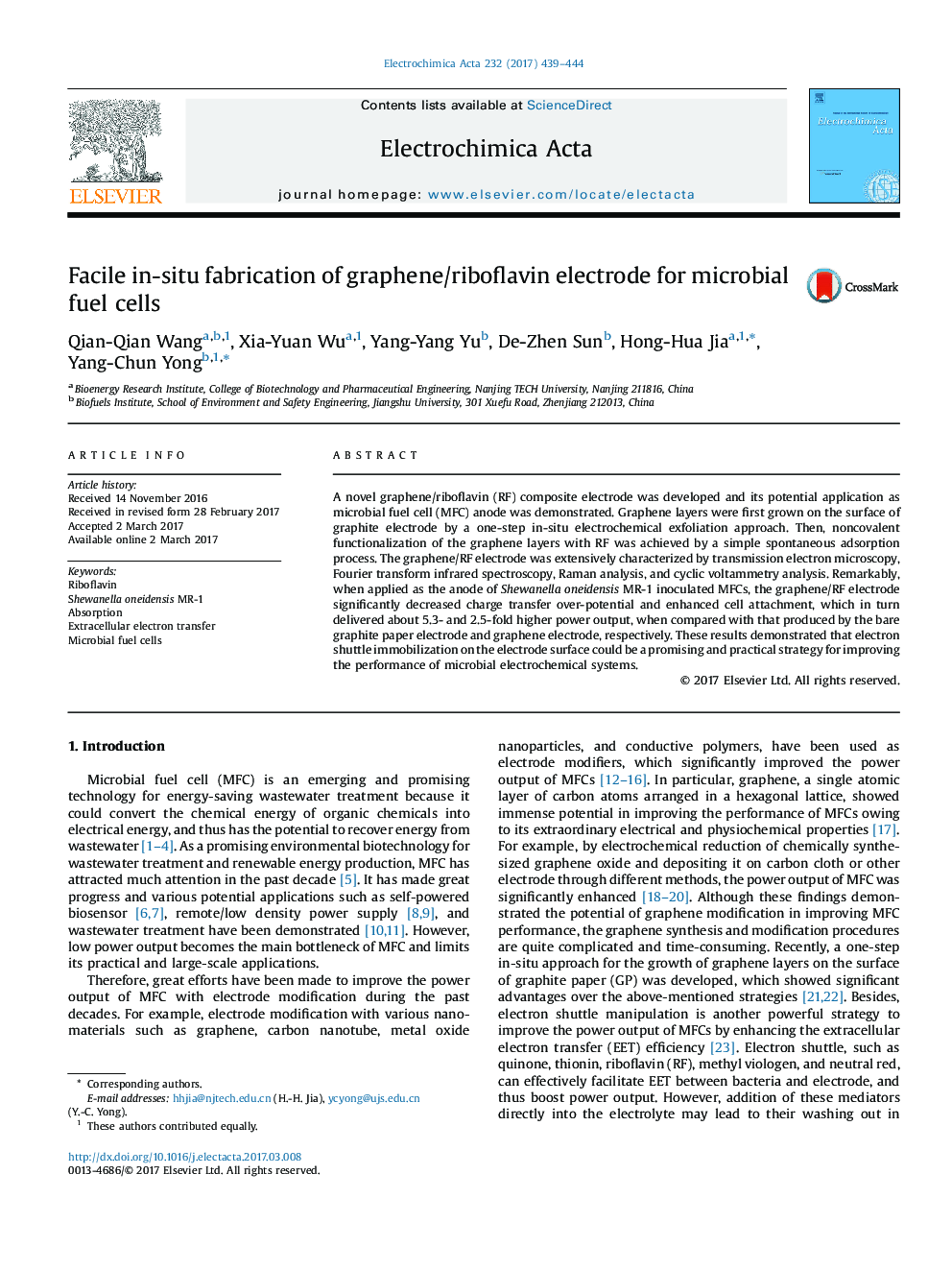| Article ID | Journal | Published Year | Pages | File Type |
|---|---|---|---|---|
| 6471893 | Electrochimica Acta | 2017 | 6 Pages |
A novel graphene/riboflavin (RF) composite electrode was developed and its potential application as microbial fuel cell (MFC) anode was demonstrated. Graphene layers were first grown on the surface of graphite electrode by a one-step in-situ electrochemical exfoliation approach. Then, noncovalent functionalization of the graphene layers with RF was achieved by a simple spontaneous adsorption process. The graphene/RF electrode was extensively characterized by transmission electron microscopy, Fourier transform infrared spectroscopy, Raman analysis, and cyclic voltammetry analysis. Remarkably, when applied as the anode of Shewanella oneidensis MR-1 inoculated MFCs, the graphene/RF electrode significantly decreased charge transfer over-potential and enhanced cell attachment, which in turn delivered about 5.3- and 2.5-fold higher power output, when compared with that produced by the bare graphite paper electrode and graphene electrode, respectively. These results demonstrated that electron shuttle immobilization on the electrode surface could be a promising and practical strategy for improving the performance of microbial electrochemical systems.
